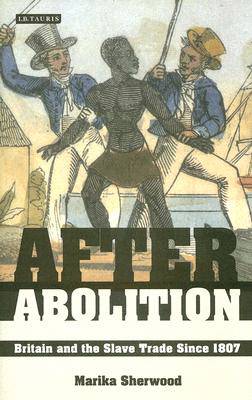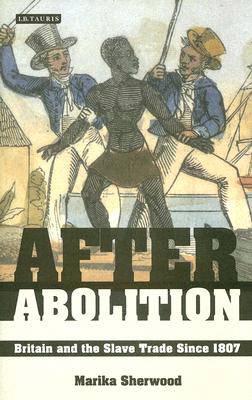
- Afhalen na 1 uur in een winkel met voorraad
- Gratis thuislevering in België vanaf € 30
- Ruim aanbod met 7 miljoen producten
- Afhalen na 1 uur in een winkel met voorraad
- Gratis thuislevering in België vanaf € 30
- Ruim aanbod met 7 miljoen producten
Zoeken
€ 103,45
+ 206 punten
Omschrijving
With the abolition of the slave trade in 1807 and the Emancipation Act of 1833, Britain seemed to wash its hands of slavery. Not so, according to Marika Sherwood, who sets the record straight in this provocative new book. In fact, Sherwood demonstrates that Britain continued to contribute to the slave trade well after 1807, even into the twentieth century. Drawing on government documents and contemporary reports as well as published sources, she describes how slavery remained very much a part of British investment, commerce and empire, especially in funding and supplying goods for the trade in slaves and in the use of slave-grown produce. The nancial world of the City in London also depended on slavery, which - directly and indirectly - provided employment for millions of people. "After Abolition" also examines some of the causes and repercussions of continued British involvement in slavery and describes many of the apparently respectable villains, as well as the heroes, connected with the trade - at all levels of society.
It contains important revelations about a darker side of British history, previously unexplored, which will provoke real questions about Britain's perceptions of its past
It contains important revelations about a darker side of British history, previously unexplored, which will provoke real questions about Britain's perceptions of its past
Specificaties
Betrokkenen
- Auteur(s):
- Uitgeverij:
Inhoud
- Aantal bladzijden:
- 256
- Taal:
- Engels
Eigenschappen
- Productcode (EAN):
- 9781845113650
- Verschijningsdatum:
- 1/04/2007
- Uitvoering:
- Hardcover
- Formaat:
- Genaaid
- Afmetingen:
- 148 mm x 221 mm
- Gewicht:
- 458 g

Alleen bij Standaard Boekhandel
+ 206 punten op je klantenkaart van Standaard Boekhandel
Beoordelingen
We publiceren alleen reviews die voldoen aan de voorwaarden voor reviews. Bekijk onze voorwaarden voor reviews.








